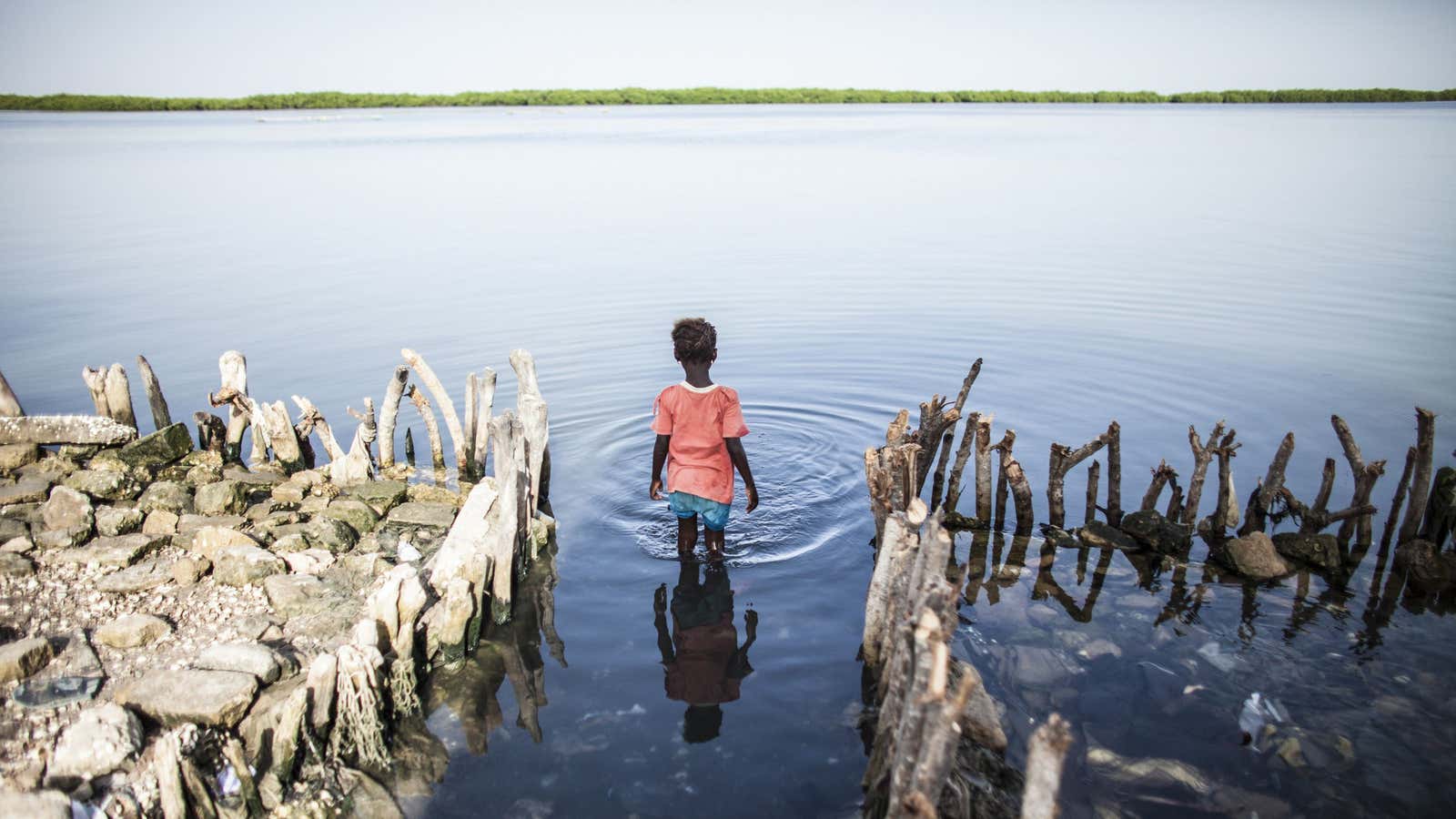Global leaders will spend the next two weeks in Paris hammering out what could be a landmark deal on carbon emissions to keep the world from heating up further.
But for people who have already been driven out of their homes by climate change, how countries assign carbon-cutting responsibilities is irrelevant. What they need, refugee advocates say, are international policies to help them tackle their new reality or resettle someplace else.
The Advisory Group on Climate Change and Human Mobility, which is made up of the United Nations’ High Commissioner for Refugees and other international agencies dealing with migrants, published a set of recommendations ahead of COP21, as the Paris climate summit is known. They include helping vulnerable communities become more resilient to climate change so people don’t have to leave their homes, as well as creating migration programs to relocate those who find it impossible to stay where they are.
The International Organization for Migration, known as IOM, issued its own set of suggestions, and is even hosting a photo exhibit in Paris to draw attention to the links between climate change and migration.
Migration is one form of adaptation that should be recognized by whatever deal is reached in Paris, says the IOM. There are already examples of how wildlife is employing it as strategy to handle the changing climate. Research shows people are moving in response to hotter weather too, though they have the added burden of dealing with international borders.
The exact number of climate-change refugees is hard to pin down because migrants are often set off by a variety of factors, experts say, but there could be millions. The Internal Displacement Monitoring Centre estimates that weather-related disasters, which are expected to multiply as temperatures rise, have displaced an average 22.5 million (pdf, page 9) people a year since 2008, the vast majority of them from poor countries.
Several Pacific Islanders, including one citizen from Kiribati, have requested refugee status due to climate change, though their petitions have been denied.
